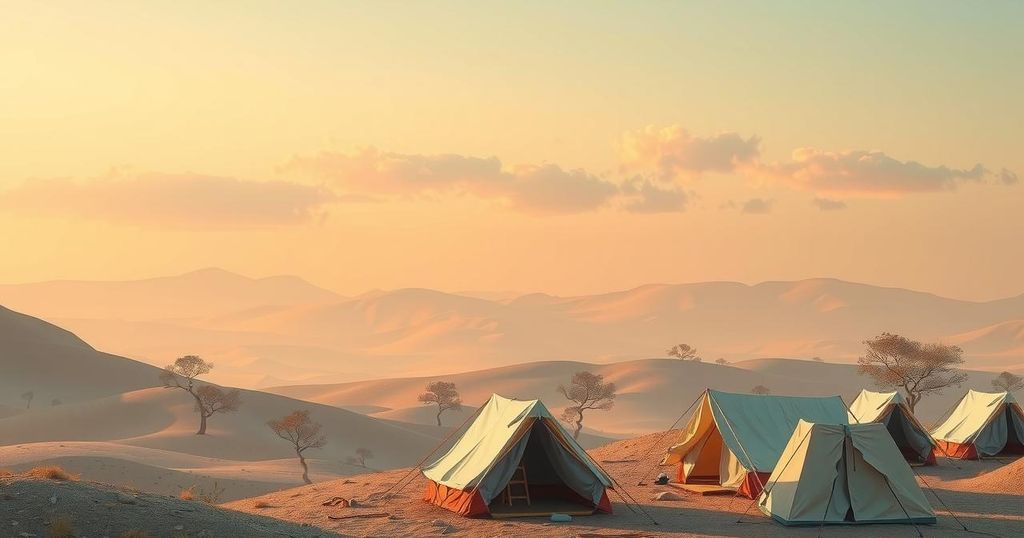Daily Life and Resilience in Gorom Refugee Settlement, South Sudan
The Gorom refugee settlement in Juba, South Sudan, is home to around 16,000 refugees, primarily from Sudan, with some from Ethiopia and Burundi. Daily life includes essential activities for survival, community bonding, and preparations for Ramadan. Registration and support from the UNHCR are critical for the refugees’ well-being.
The Gorom refugee settlement is located on the outskirts of Juba, South Sudan, and currently accommodates around 16,000 refugees. The majority of these individuals are from Sudan, although there are also refugees from Ethiopia and Burundi. The influx of Sudanese refugees into Gorom continues to increase significantly, highlighting the ongoing humanitarian crisis in the region.
Daily life at the Gorom settlement includes various activities essential for survival. Refugees engage in tasks such as laundry, fetching water, and food preparation. These activities reflect their resilience amidst challenging living conditions, as many look to maintain a sense of normalcy while preparing for significant events, such as Ramadan.
Interactions among the refugees are evident, with individuals supporting one another, as seen when a Sudanese refugee assists a companion in combing her hair. Attention to daily necessities and community bonds remains vital for coping with life in the settlement. Furthermore, many refugees are seen participating in literacy activities, emphasizing the importance of education even in difficult circumstances.
Registration for assistance is a crucial part of the refugees’ lives. Many refugees wait outside the United Nations High Commissioner for Refugees (UNHCR) office, seeking necessary documentation and support. This highlights the reliance on international organizations to assist with their needs and improve their living conditions.
In summary, the Gorom refugee settlement represents both the struggles and resilience of approximately 16,000 refugees from Sudan and neighboring countries. Daily activities such as laundry, water collection, and food preparation are essential for survival, while community support and education reflect their determination to endure. The ongoing challenges faced by these individuals underscore the necessity for continued humanitarian assistance and international support.
Original Source: english.news.cn




Post Comment